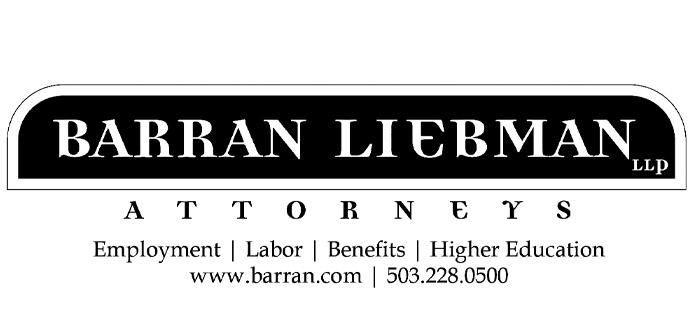The new year brings with it new federal protections for workers affected by pregnancy, childbirth or related medical conditions. On December 29, 2022, the Pregnant Workers Fairness Act and the Providing Urgent Maternal Protections (PUMP) for Nursing Mothers Act were signed by President Biden.
The Pregnant Workers Fairness Act (PWFA)
The PWFA is similar to the Americans with Disabilities Act (ADA) for pregnant workers and becomes effective on June 27, 2023. The law requires employers with 15 or more employees to make reasonable accommodations for qualified employees affected by pregnancy, childbirth or related medical conditions unless the employer can demonstrate that providing an accommodation would impose an undue hardship.
Under the PWFA, a “qualified employee” is “an employee or applicant who, with or without reasonable accommodation, can perform the essential functions of the position, except that an employee or applicant shall be considered qualified if any inability to perform an essential function is for a temporary period; the essential function could be performed in the near future; and the inability to perform the essential function can be reasonably accommodated…” The PWFA specifically declares that it is an unlawful employment practice to:
- not make reasonable accommodations to the known limitations related to the pregnancy, childbirth or related medical conditions of qualified employees unless the accommodation would impose an undue hardship on an entity’s business operations;
- require an employee affected by pregnancy, childbirth or a related medical condition to accept an accommodation other than any reasonable accommodation arrived at through the interactive process;
- deny employment opportunities to qualified employees if such denial is based on the employer’s need to make reasonable accommodations to the known limitations related to the pregnancy, childbirth or related medical conditions of a qualified employer;
- require that a qualifying employee take paid or unpaid leave if another reasonable accommodation can be provided; or
- take adverse actions against a qualified employee requesting or using reasonable accommodations to the known limitations related to the pregnancy, childbirth or related medical conditions of the employee.
Providing Urgent Maternal Protections (PUMP) for Nursing Mothers Act
Since 2010, the Patient Protection and Affordable Care Act (ACA) amended the Fair Labor Standards Act (FLSA) to require most employers to provide nursing employees reasonable break time and a private location to express breast milk after the birth of a child for up to one year after childbirth. The location must not be a bathroom and must be shielded from view and free from employee and public intrusion.
The PUMP for Nursing Mothers Act expands on the ACA requirements with additional protections for employees who need to express breast milk. Specifically, the new law provides protections for salaried exempt workers and other workers not previously covered by the ACA. Additionally, time spent expressing breast milk must be considered time worked if the employee is not completely relieved from duty during the entirety of such break, unless compensation is otherwise required by law or contract. The law also extends this to include the two-year period beginning on the date on which the circumstances related to the need to express breast milk arise.
Employers with fewer than 50 employees are not subject to the requirements of the PUMP Act if the requirements would impose an undue hardship by causing the employer significant difficulty or expense when considered in relation to the size, financial resources, nature or structure of the employer’s business.
Oregon’s Pregnancy Accommodations Law
The PWFA and the PUMP for Nursing Mothers Act may look familiar to Oregon employers, and they should. Oregon law already provides similar protections to workers affected by pregnancy, childbirth and related medical conditions, including lactation. Specifically, ORS 659A.147 makes it an unlawful employment practice for an employer to discriminate against an employee or applicant because of known limitations related to pregnancy, childbirth or other related medical conditions.
Similarly, Oregon’s wage and hour statute requires Oregon employers to provide reasonable, unpaid rest periods to accommodate an employee who needs to express breast milk, each time the employee needs to do so. For an employee’s child 18 months of age or younger, Oregon law requires employers to provide nursing employees with a private location in close proximity to the employee’s work area, other than a bathroom, that is shielded from view and free from intrusion by coworkers and the public, to express milk. Employers with fewer than 10 employees are not required to provide rest periods under this state law if doing so would impose an undue hardship on the operation of the employer’s business.
Many Oregon employers should already be providing the various protections provided by the PWFA and the PUMP for Nursing Mothers Act, given existing state law requirements. However, employers who have employees working in other states should pay special attention to these new federal laws. The U.S. Department of Labor Wage and Hour Division and the Equal Employment Opportunity Commission (EEOC) are expected to release additional guidance to assist employers in complying with these new laws in the coming months. Employers should review handbooks and pregnancy accommodation policies, as well as train supervisors, managers and HR staff about how to implement these policies.
For any compliance questions, contact Barran Liebman LLP labor and employment attorney, Nicole Elgin, at nelgin@barran.com or 503-276-2109.





